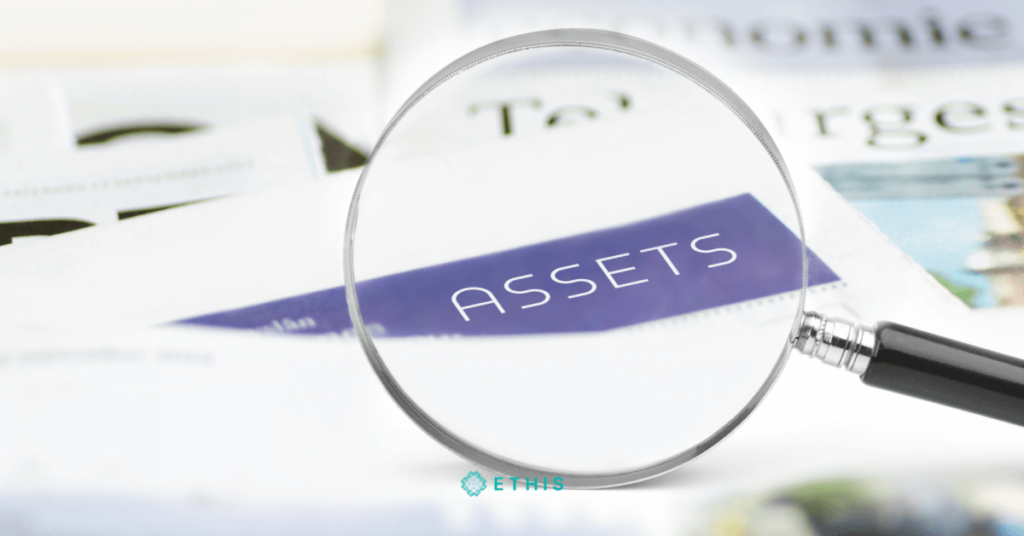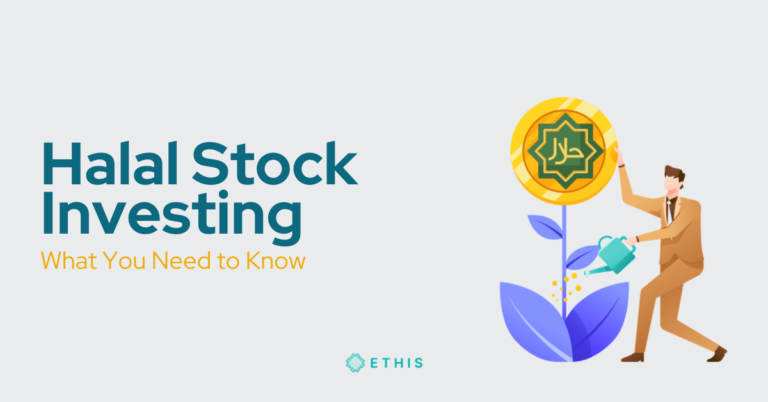
Muslims are required by Shariah to only invest in firms that are 100 percent halal.
To begin with, a halal business strategy does not take interest-based loans to finance its operations.
The trickiest part is determining which stocks on the stock market satisfy these criteria.
That doesn’t mean, though, that it isn’t achievable.
Investing according to Islamic principles can help us both satisfy the obligations of the Quran and provide a more secure future for our family in the process.
Here, we’ll dispel some of the myths surrounding Islamic trading and offer our top five stock screening suggestions. Read on as we equip you on how you can make a halal investment!
What is halal trading and how does it work?


Let’s begin by examining what constitutes a stock as halal or haram.
For example, Shariah teaches us that we should seek a balance between ourselves and our communities.
In other words, it is just another way to invest in a way that is good for the community, also known as socially responsible investing.
Who wouldn’t want to invest in enterprises that serve society and safeguard the well-being of the next generation?
As a result, a growing number of socially concerned non-Muslim investors are also turning to halal investing strategies.
As long as you don’t disregard the interests of others when investing, stock market wealth accumulation is not considered haram.
Shariah-compliant stock investing is built on the following principles:
· Being committed to profit-sharing
· The prohibition of Riba (exploitation)
· The prohibition of gambling
· The permissibility to only invest in legal activities.
· Upholding moral and ethical principles
When it comes to investing, many Muslims would consider these principles to be essential considerations. It’s not an overly complicated set of rules. As Muslims, what we do on a daily basis, including investment decisions, is a reflection of the values we strive to uphold and impart with others.


How can you tell whether your stock is truly halal?


Incredibly, 42% of the FTSE 100 is Shariah-compliant, which may surprise you. As a result, investing may be less complicated than you thought. You only need to know how to conduct a basic screening before buying stocks to verify that each deal you make respects Shariah standards. This is further elaborated below:
1) Have a look at the company’s business model


Checking the business model of the firm you are contemplating investing in is the simplest screen you can perform. Some businesses are haram by definition, such as selling or promoting alcohol, selling pork products, facilitating gambling, promoting illegal acts, promoting pornography and manufacturing weapons.
Any firms in these industries should be ruled out immediately. Then there are some ambiguities. Companies that earn interest in the financial services industry, such as banks, insurers, and stockbrokers, may be regarded to be violating Shariah standards. If in doubt, stay away. Alternatively, conduct extensive research before investing your money.
Aside from the business concept, another consideration is that firms must be in operation in order to be declared halal. This signifies that capital planning has been completed, and facilities and equipment have been acquired at the investment point. Shariah prohibits you from investing in a company’s “idea” that’s yet to materialise.


2) Examine the company’s operations in more detail


Many prospective investors do an initial screening of a business proposition and consider it sufficient if the entire firm is halal. But what happens if the company’s operations include haram practises?



The most typical error that new Muslim investors make is to place their money into firms that generate interest-based revenue or businesses that borrow money on interest. Such investors are generating revenue from assets that are not in accordance with Shariah law.
If this applies to a stock that you are contemplating investing in, there is a basic criterion that can be followed to determine whether the investment is still acceptable. The income from haram investments should not exceed 5 percent of the company’s total gross revenue.
You’ll have to undertake some investigation in order to find out this information. Examine yearly records to discover how much income was received by non-compliant investments and how much revenue was received by the company’s gross revenue. If it surpasses 5 percent, there are two generally permitted scenarios.
First and foremost, the investor must assess the amount of haram money obtained and balance it by donating the same percentage of his profits to charity. Second, the investor must voice his or her disapproval to these haram actions, whether in writing or vocally.
3) Inquire about any interest-bearing debts


According to Islamic law, the third requirement that a stock must satisfy in order to be considered halal is the ratio of interest-bearing debt in relation to the total assets of the firm. The entire amount of interest-bearing debt must not exceed 33 percent of total assets in any given year.
It’s important to note that the 33 percent statistic is applicable to all investments, not only halal ones. Numerous non-Muslim investors use comparable benchmarks for their stock screens since it is considered to be a risk threshold that is acceptable to them.
It might, however, be difficult to determine the total amount of interest-bearing debt that a company owes to creditors. During the course of reviewing some financial statements, you may see that borrowings are recorded as interest-free loans from directors. Ask to see the additional notes on accounts, which break down the loans even further and will tell you exactly what you need to do to solve this problem.
4) Verify the ratio of illiquid assets to total assets


When a financial asset, such as real estate, cannot be turned into cash, it is described as illiquid. In the event that a firm is underfunded, the owners may decide to sell off illiquid assets to raise more funds for the company. Consequently, they are frequently sold for less than their market worth when this occurs.
But how does this relate to Shariah compliance, if at all?
If a company’s assets are entirely liquid, such as cash in the bank and no other assets, it can be sold at face value without any additional consideration. Mufti Taqi believes that illiquid assets should account for at least 20 percent of overall assets in this case.
A balance sheet that incorporates goodwill gestures, real estate, equipment, and any other intangible assets that the firm may hold can be used to detect potentially illiquid assets. Total the data for illiquid assets and divide them by the total assets before multiplying by 100 to get the percentage of total assets. You will want it to be 20% or more in order to invest.
5) Make stock screening simpler by utilising Islamic finance apps
For the most part, the first four ideas have addressed the most important factors to consider when evaluating stocks for conformity with Shariah principles. However, if you don’t have the time to do a full screening on your own, our final suggestion provides a solution.
We propose that you use an Islamic finance app such as Zoya or Islamicly to determine whether or not individual stocks are consistent with Islamic principles. Both applications are available in free versions, and they will let you determine whether or not a stock is a good halal investment in real time.
It is also possible to acquire a full discussion of why a stock passed or failed if you subscribe to a premium subscription. It’s easy, effective, and reliable for investors who don’t have the time to research stocks in depth but want to verify that the companies they invest in adhere with Islamic principles.


Conclusion
You do not want your hard-earned money invested in haram companies. After all, the beauty of halal investment methods is that they give your family more than just financial stability in the future. They give security to the whole community by investing in socially responsible businesses that benefit society and future generations.
In this way, you’re making your money work a little harder while still remaining committed to your principles. It’s really the best of both worlds!





Top Posts
Islamic P2P Crowdfunding Explained
Halal Money Matters: How Muslims Can Balance Deen and Dunya with Smart Islamic Finance
Halal Investments for Singapore Muslims? It’s time for a shake-up in the Islamic Investments scene.
Smart investment for making Halal money
3 Reasons Why Property Crowdfunding is the Smart Investment for You